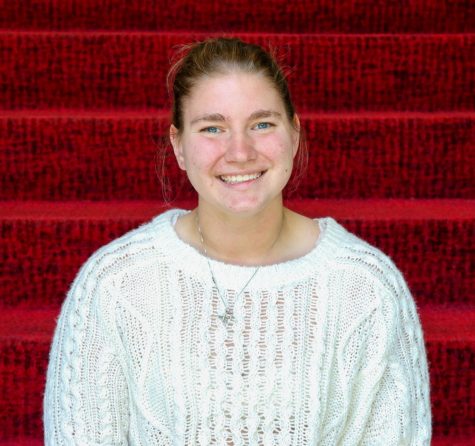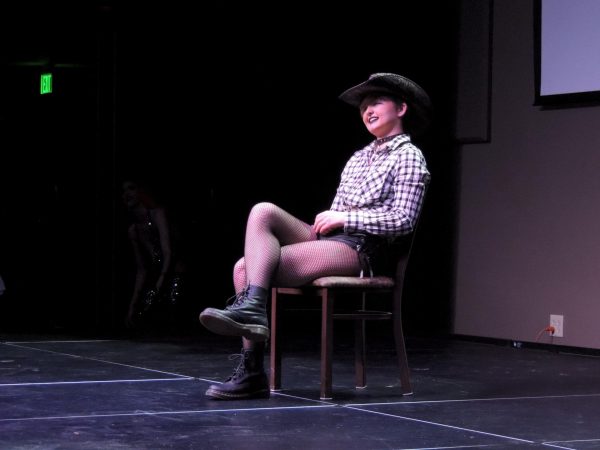Are community advisers stricter about parties this year?
December 6, 2017
INDIANOLA, Iowa — Partying is a natural element of campus life; students go to parties on the weekends to socialize and meet new people.
This year students, students said community advisers have become seemingly stricter, and more parties are being busted.
At the beginning to the year, CAs host an initial floor meeting to meet their residents and talk about the rules. CAs mention the alcohol policies but most do not go in depth, so students are not aware of all of the rules.
Simpson’s alcohol policy states that consumption of alcohol is permitted in individual student rooms by a small group of students of legal drinking age.
A group of no more than two guests per resident, but never totaling more than 12 people in a room is allowed.
Any group of more than 12 people where alcohol is present is an unregistered party and is subject to disciplinary action.
This rule does not apply to Greek-life areas where alcohol is allowed and up to 10 students may be present in a room with the door open.
Senior Kyle Hovey lives in the Colonial Apartments and was written up on Stand Around night. The party was broken up due to more than 12 people being present in the room with alcohol present.
“This was new to us,” Hovey said. “I don’t remember if it was Elyse that told us or someone else, that it’s a fire code policy that there can only be 12 people, but it’s only enforced if there’s alcohol present, which I think is kind of ridiculous. If it’s a fire code thing it should be enforced no matter if there’s alcohol present or not.”
Many upperclassmen in the apartments are not aware of this rule, and the CAs seem to be enforcing it more this year than last year. Students also noticed not all CAs mentioned the alcohol policies during the initial floor meetings.
Senior Sam Sweet, apartment student hall coordinator, said the initial floor meetings, especially in the apartments, are focused more on where students can find laundry and toilet paper, along with rules such as “don’t leave trash in the hallway.”
“Residents are expected, as they have been every year, to know the policies themselves,” Sweet said. “We’re not expected or told to cover the alcohol policies.”
Upperclassmen are upset about the sudden change in enforcement of the rules and think last year’s apartment CAs did not enforce the rules as hard as this year.
“I definitely think they have been a lot stricter than they ever have been in the last three years,” Hovey said. “Last year we threw a few parties and nothing ever got broken. There was never any problems with the people who were there. We kept things under control ourselves.
“The CAs came a couple times. If they came at like 10 they just told us to ‘kick a few people out and keep it under control, we’ll be back at midnight and it better be broken up.’ Every time, we listened to them and we never had any problems with fines or getting written up.”
For many, CAs have not given warnings this year and are immediately writing residents up for policy violations. There are situations that would warrant a warning, such as having 13 or 14 people in the room instead of 12, which can create the thinking that students should get a warning every time.
“I think that’s where the misconception comes from,” Sweet said. “People automatically think they are supposed to get a warning every single time, but they really have to be aware of their own situation and aware of the policy. Put themselves in our shoes.”
Students have also gotten written up around 10:30 p.m. or earlier, which some say is not a time close to the CA rounds. CAs go on rounds around 7 p.m., 10 p.m., 12 a.m. and 2 a.m. They can start about 15-20 minutes before those times, and it takes time to walk to all the buildings, Sweet said.
Quiet hours on the weekends begin at midnight and students are written up before this, but there are 24 hour courtesy hours all the time. It has to be quiet after midnight on the weekends, Sweet said.
Most of the time, noise brings attention to the CAs due to hearing it on rounds or students calling the duty phone. CAs check on all complaints sent to the duty phone and have to confront a situation if it clearly violates policy.
This leaves students feeling like they cannot drink on campus, so they go to other schools or downtown Des Moines to party. Leaving campus raises the concern of the risk of drinking and driving.
Senior Ian McKenzie thinks this create dangerous situations for students.
“I think that students are now realizing that they can’t really have parties in their rooms anymore,” McKenzie said. “That just becomes a more dangerous situation of students drinking and driving. I would much rather deal with Simpson College Residence Life than deal with the Indianola Police Department.”
McKenzie also said a positive nightlife on campus would encourage students to stay on campus and worries that a negative nightlife will affect retention and recruitment.
There is a perception of the CAs cracking down on policies due to pressures from Residence Life. While some CAs do feel pressured, the training and policies have not changed from last year to this year.
The CAs are doing their job and enforcing the rules. They understand students are going to drink and parties are going to happen, but they have to do their job.
“I think every single apartment CA and every single CA on campus, we really don’t want to write you up, but we have to do our jobs, because we need people on campus to do them,” Sweet said. “Most CAs sign up to be CAs with confronting situations not being at the front of their minds. A lot of us want to be CAs because we want to make an impact on residents’ lives.”












